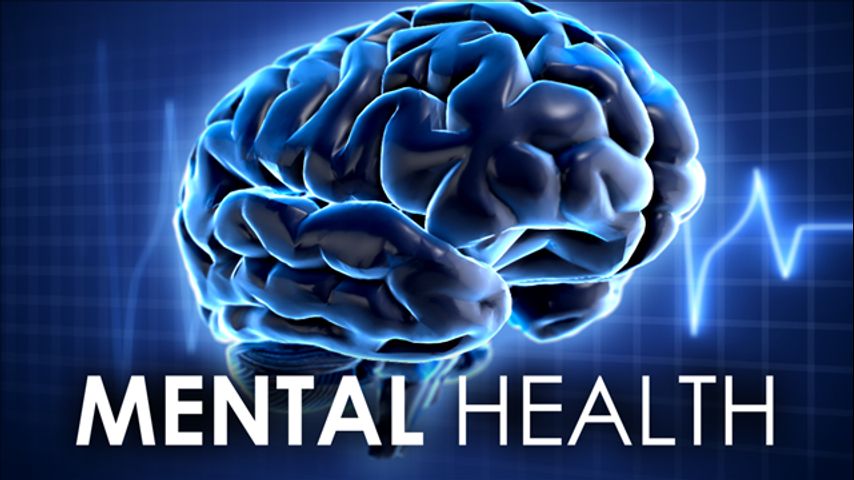Introduction
Mental health—two words, yet they carry a weight that can define the quality of our lives. We all talk about physical health, but how often do we really consider our mental health? It’s just as crucial, if not more so, in shaping our day-to-day experiences. So, what is mental health, and why does it matter so much? Let’s break it down.
Understanding Mental Health
Mental health is a broad term that refers to our emotional, psychological, and social well-being. It influences how we think, feel, and behave in our daily lives. Mental health affects everything—from how we handle stress to how we relate to others and make decisions. It’s an integral part of our overall health.
The Importance of Mental Health
Why should you care about mental health? Simple: because it impacts every aspect of your life. Good mental health allows you to function well in daily activities, maintain positive relationships, and cope with the normal stresses of life. Without it, even the simplest tasks can become overwhelming.
Mental Health vs. Mental Illness
It’s easy to confuse mental health with mental illness, but they’re not the same. Mental health refers to the state of your mental well-being. In contrast, mental illness encompasses a range of conditions that affect your mood, thinking, and behavior. Conditions like depression, anxiety, and bipolar disorder are examples of mental illnesses. It’s possible to have poor mental health without having a mental illness, and vice versa.
Factors Influencing Mental Health
So, what shapes our mental health? A mix of factors, really. Here are the big three:
- Biological factors: Genetics, brain chemistry, and physical health play a significant role.
- Psychological factors: Your thought patterns, trauma history, and coping mechanisms matter.
- Environmental factors: Relationships, work environment, and cultural background can all impact your mental health.
Signs of Good Mental Health
Wondering if you’re mentally healthy? Here are some positive signs:
- You feel good about yourself.
- You can handle stress effectively.
- You maintain healthy relationships.
- You’re able to work productively.
- You have a sense of purpose.
Warning Signs of Mental Health Issues
On the flip side, how do you know when something’s wrong? Here are some common red flags:
- Feeling sad or down most of the time
- Excessive fears or worries
- Extreme mood swings
- Withdrawal from friends and activities
- Changes in eating or sleeping habits
If you notice these signs, it might be time to seek help.
How to Maintain Good Mental Health
Just like physical health, mental health requires ongoing attention. Here are some daily habits to help you stay mentally fit:
- Exercise regularly: Physical activity releases endorphins, which improve mood.
- Eat a balanced diet: Nutrition impacts brain function.
- Get enough sleep: Sleep is essential for mental recovery.
- Practice mindfulness or meditation: These practices help reduce stress.
- Stay connected: Maintain strong relationships with friends and family.
The Role of Physical Health in Mental Health
It’s all connected. Your body and mind are a team, and they need to work together. Regular exercise doesn’t just keep you fit; it also boosts your mood by releasing feel-good chemicals in the brain. Eating well fuels your brain, and getting enough sleep helps you manage stress better. So, next time you think about skipping that workout, remember it’s not just your body that benefits—it’s your mind too.
Mental Health in Different Age Groups
Mental health isn’t one-size-fits-all; it varies with age.
- Children and Teens: Young people face unique challenges, from school stress to peer pressure. Early intervention is crucial.
- Adults: Balancing work, family, and personal life can be overwhelming. Managing stress and seeking support when needed is vital.
- Elderly: Aging can bring about loneliness and a decline in physical health, both of which can impact mental well-being. Social connections and mental stimulation are key.
The Impact of Society on Mental Health
Society plays a huge role in shaping our mental health. Cultural norms, societal expectations, and even social media can affect how we see ourselves and the world. For instance, constantly comparing yourself to others on social media can lead to feelings of inadequacy and anxiety. It’s important to be aware of these influences and take steps to protect your mental well-being.
Mental Health in the Workplace
Work is a significant part of our lives, and it can greatly impact our mental health. Stress at work is common, but it’s how we manage it that makes the difference. Here are some tips:
- Set boundaries: Don’t let work take over your personal life.
- Take breaks: Regular breaks can help you stay focused and reduce stress.
- Seek support: If work is overwhelming, talk to a supervisor or seek professional help.
Seeking Help for Mental Health Issues
If you’re struggling with your mental health, know that help is available. Mental health professionals, like psychologists, psychiatrists, and counselors, are trained to help you navigate your challenges. Don’t wait until things get worse. Seeking help early can make a big difference.
Breaking the Stigma Around Mental Health
Unfortunately, there’s still a lot of stigma surrounding mental health. Many people feel ashamed or embarrassed to talk about their struggles, which can prevent them from seeking help. But the truth is, mental health issues are common, and there’s no shame in getting help. The more we talk about it, the more we can reduce the stigma and support each other.
Conclusion
Mental health is a crucial part of our overall well-being. It affects every aspect of our lives, from our relationships to our work and even our physical health. By understanding what mental health is, recognizing the signs of mental health issues, and taking steps to maintain good mental health, we can live happier, more fulfilling lives. Remember, it’s okay to ask for help. Taking care of your mental health is just as important as taking care of your body.
FAQs
- What is mental health?
- Mental health refers to our emotional, psychological, and social well-being. It affects how we think, feel, and act.
- How can I improve my mental health?
- You can improve your mental health by exercising regularly, eating a balanced diet, getting enough sleep, practicing mindfulness, and staying connected with loved ones.
- What are the warning signs of mental health problems?
- Warning signs include feeling sad or down, excessive fears or worries, extreme mood swings, withdrawal from friends and activities, and changes in eating or sleeping habits.
- How is mental health treated?
- Treatment can include therapy, medication, lifestyle changes, and support from loved ones. It’s important to seek help from a mental health professional.
- Why is mental health awareness important?
- Mental health awareness helps reduce the stigma around mental health issues and encourages people to seek help when needed.

